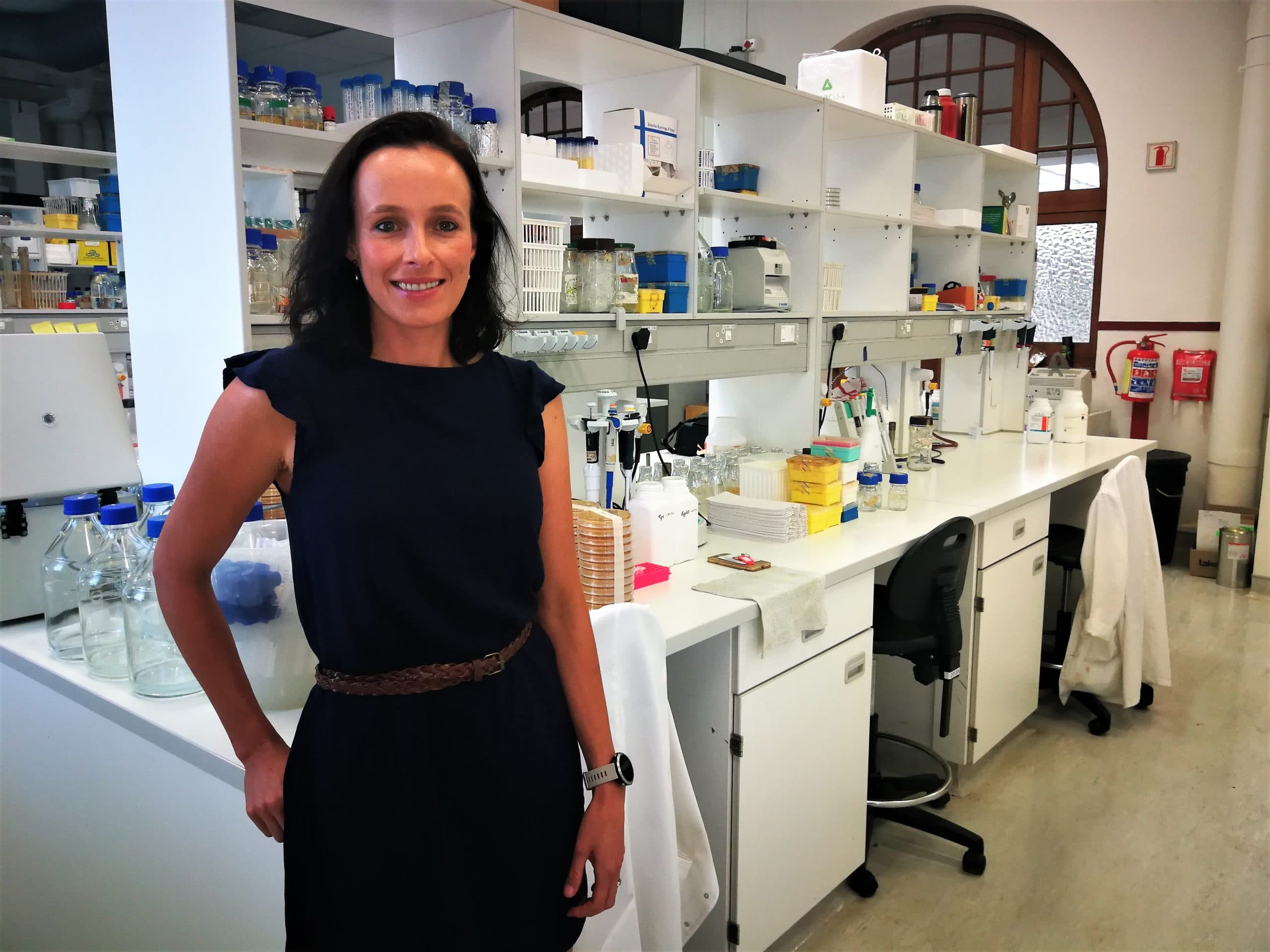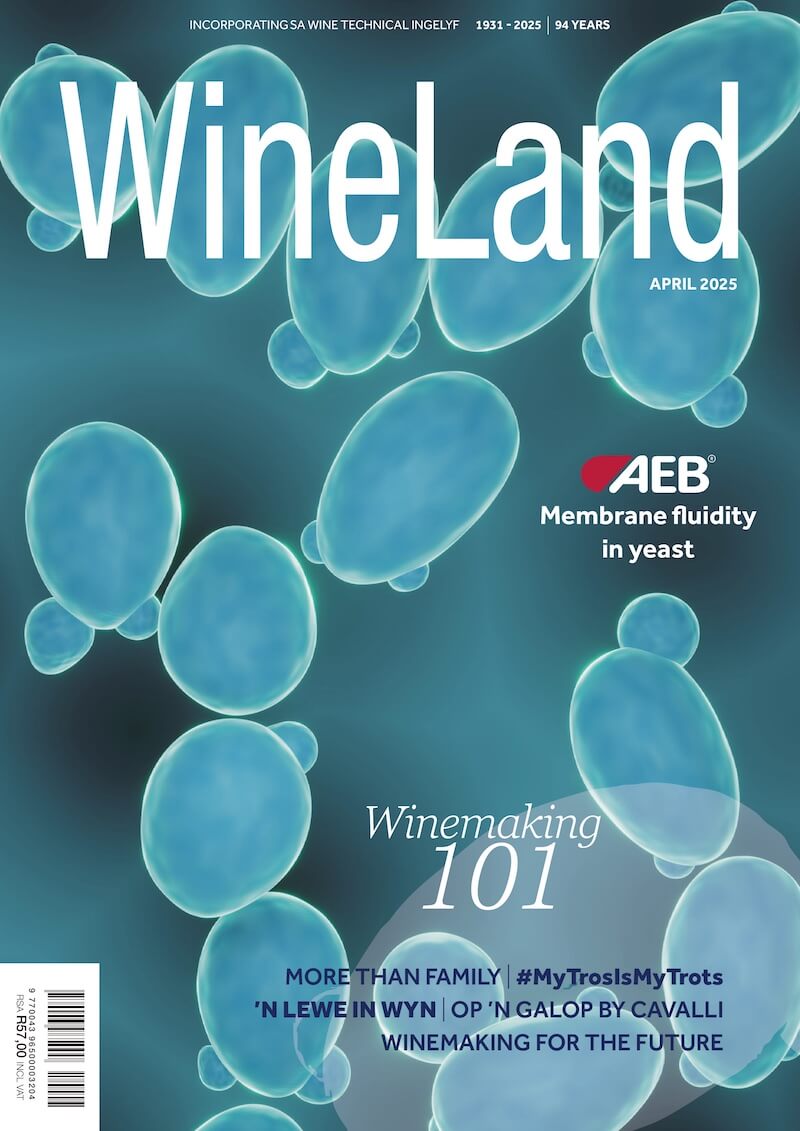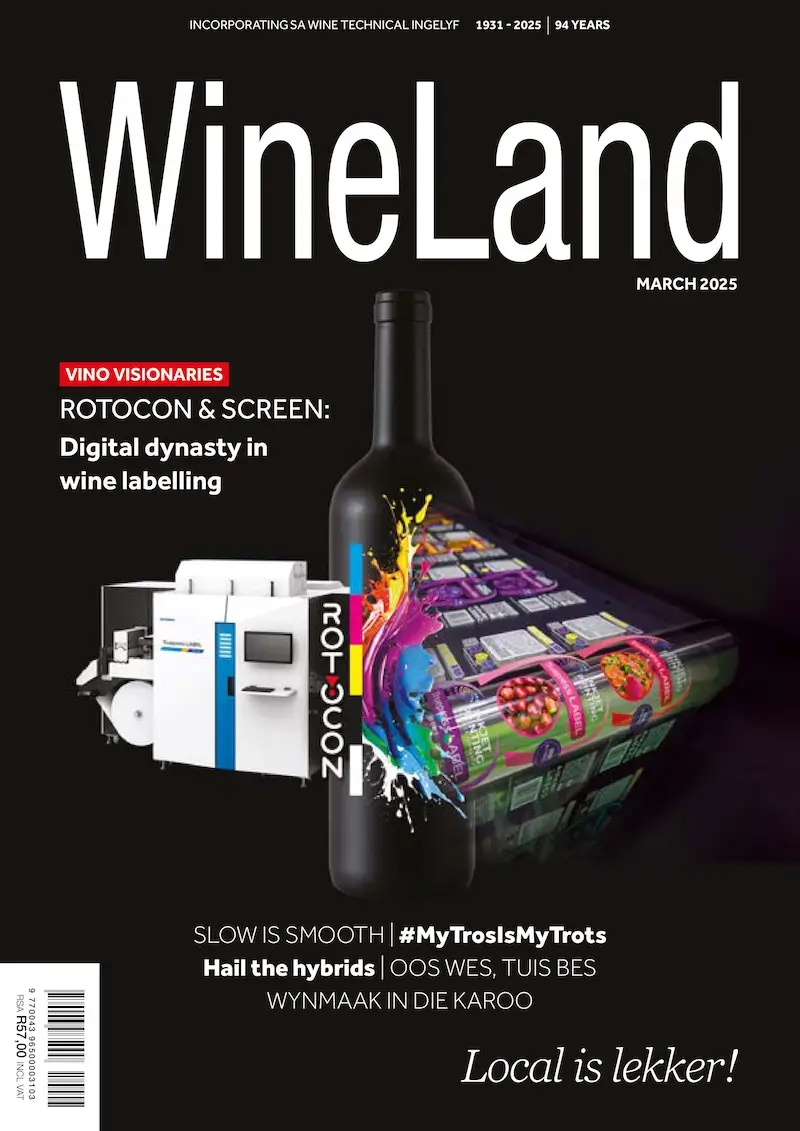
Dr Debra Rossouw, biotechnologist at Stellenbosch University (SU).
Last year, Stellenbosch University (SU) biotechnologist Dr Debra Rossouw and process engineer Dr Margreth Tadie were both the first to receive FLAIR Fellowships (Future Leaders – African Independent Research).
The initiative recognises them as being among Africa’s most promising early career researchers. Both have now also received FLAIR Collaboration Grants, which allows them to team up with leading experts in the UK in their fields of study.
The FLAIR Fellowship is an initiative of the African Academy of Sciences and the Royal Society, with support from the UK’s Global Challenges Research Fund (GCRF). It helps talented early-career researchers whose work is focused on the needs of the continent to establish independent careers in African institutions. It gives them the opportunity to develop their careers, bolster international networks and to address global challenges.
In all, 14 South Africa-based researchers were among the inaugural 30 FLAIR awardees selected in 2019 from a competitive pool of 700 applicants across the continent. Twenty have now received FLAIR Collaboration Grants.
Biotechnologist Dr Debra Rossouw studies yeasts, bacteria and microalgae and is a member of staff at the SU Institute for Wine Biotechnology. The FLAIR Collaboration Grant allows her to team up with Prof Matthew Goddard from the University of Lincoln. They will work together on an ecologically sustainable project to combat an array of damaging fungal species which amongst others cause food and beverage spoilage as well as other opportunistic fungal infections. They will focus on yeast species that can be used and modified as biocontrol agents s to selectively target or attack harmful fungal species.
Debra says that, aside from the standard project expenses, the grant allows for herself and postgraduate students to travel and spend research stays with the UK partner as deemed necessary.
“The greatest benefit perhaps will be the cohesive and robust interchange between the Leeds and Stellenbosch partners’ complementary experience base and collective inputs,” she adds.
She says Prof Goddard’s experience in fungal ecology will be a key to successfully engineer microbial-based consortia for effective biocontrol of harmful yeasts – an increasing global concern.
Debra studies how different species of yeasts interact with one another, or with bacteria and algae, and how these could be used in industrial processes.
Such micro-organisms are typically between 1 and 6 thousandths of a millimetre (or 1-6 micrometers) in diameter. Through her research, Dr Rossouw focusses on one extremely small but significant aspect of these micro-organisms – their cell walls. She studies the genes and proteins that control and influence how these structures function. To do so, she uses a variety of techniques from traditional molecular biology methods and microscopy to computational simulations and next generation sequencing technologies.
She was the first to publish a paper on a topic called co-aggregation (or co-flocculation). This phenomenon happens when the cell walls of different species of yeast adhere or “glue” to each other in very species-specific patterns. She found out that in some cases, these interactions influence the very survival (or not) of the species involved.
“One would be able to use these interactions for biocontrol purposes or, alternatively, to ‘build’ ecosystems to improve fermentation technology or wastewater bioremediation measures,” she comments on the future relevance of her work.
She hopes her findings will benefit commercial fermentation practices and improve the environmental sustainability of the wine sector.
“Aside from the practical applications, the research I am embarking on will shed light on how physical interactions between different species may have shaped the evolution of micro-organisms in natural ecosystems in which numerous species occur together,” she adds.
Debra has an excellent academic track record and is the recipient of numerous South African research fellowships over the past decade. She obtained a PhD in Wine Biotechnology from Stellenbosch University in 2009. She received all of her qualifications in plant biotechnology cum laude from Stellenbosch University, starting with a BSc in Biotechnology in 2003.
She grew up in Pietermaritzburg, KwaZulu-Natal, and matriculated from Carter High School in 2000. She lives outside Paarl and is an avid mountain biker and trail runner.













